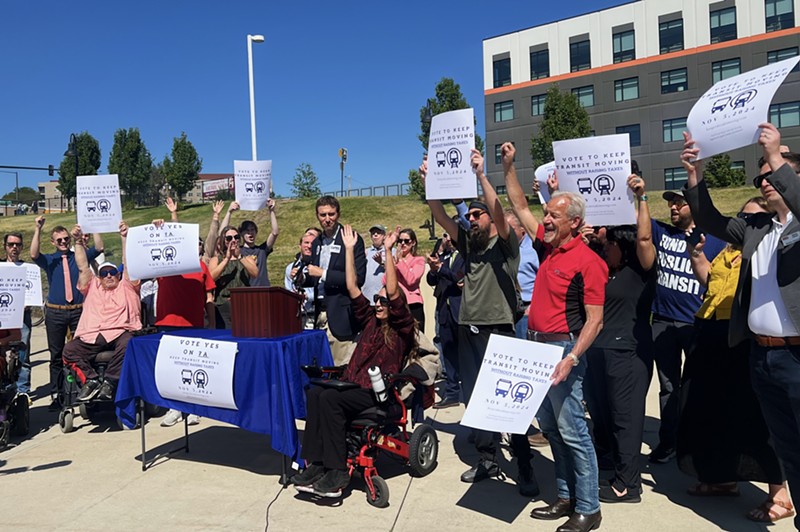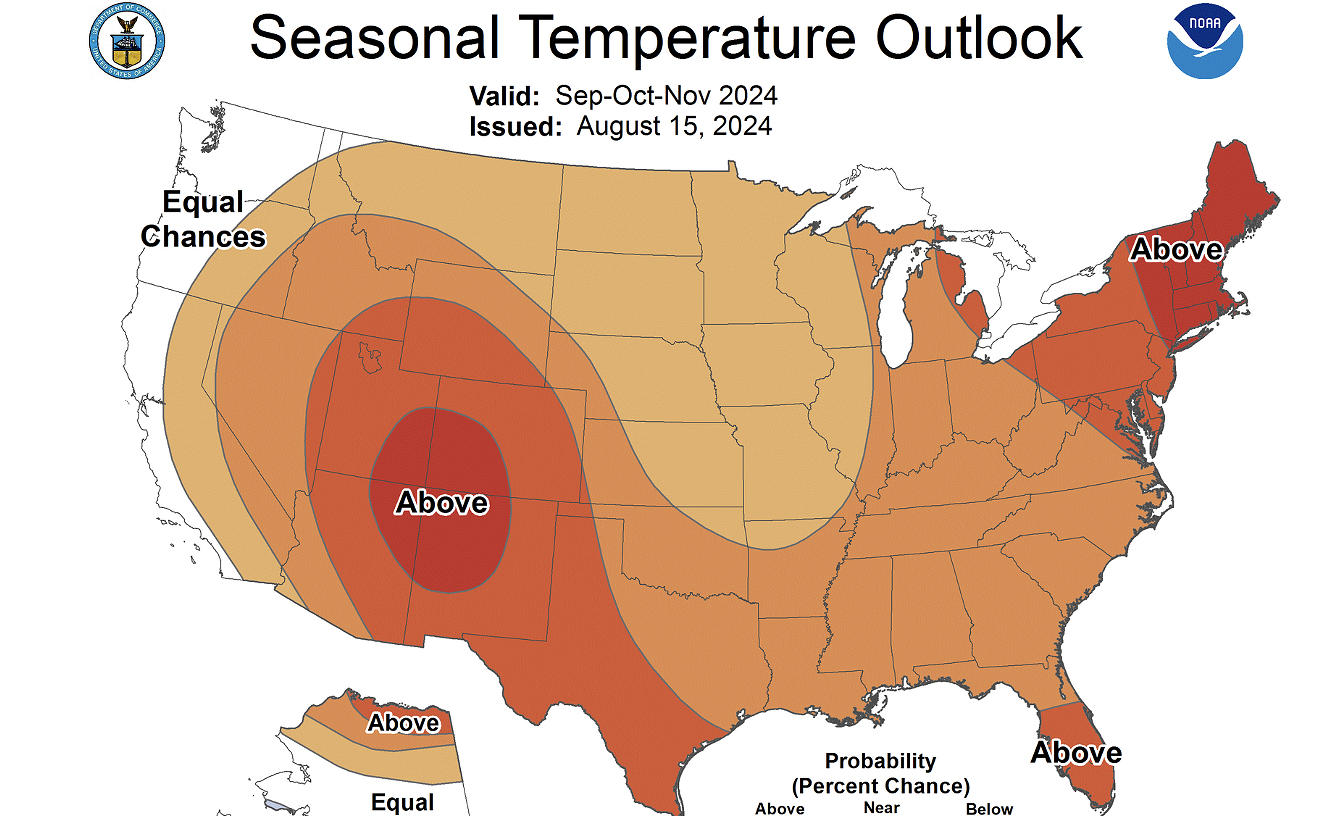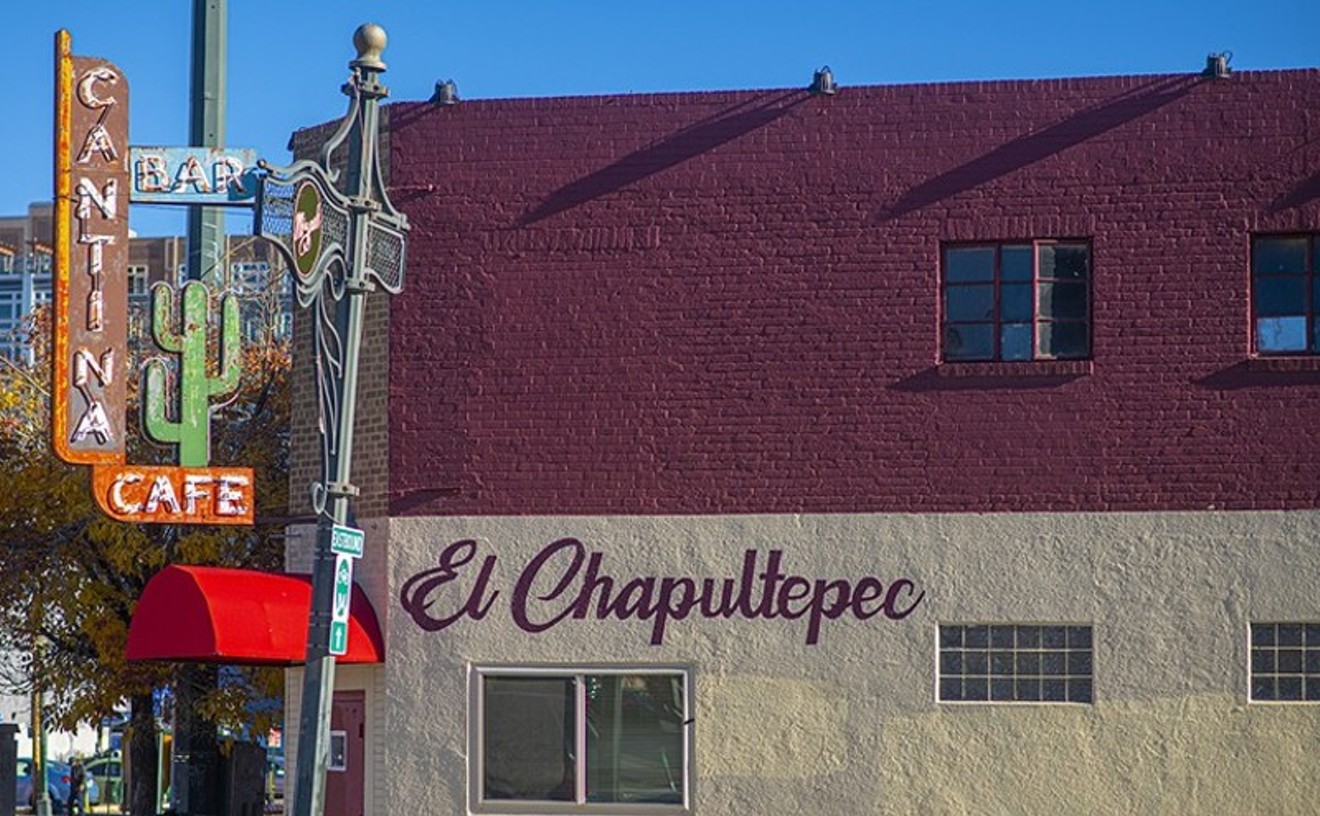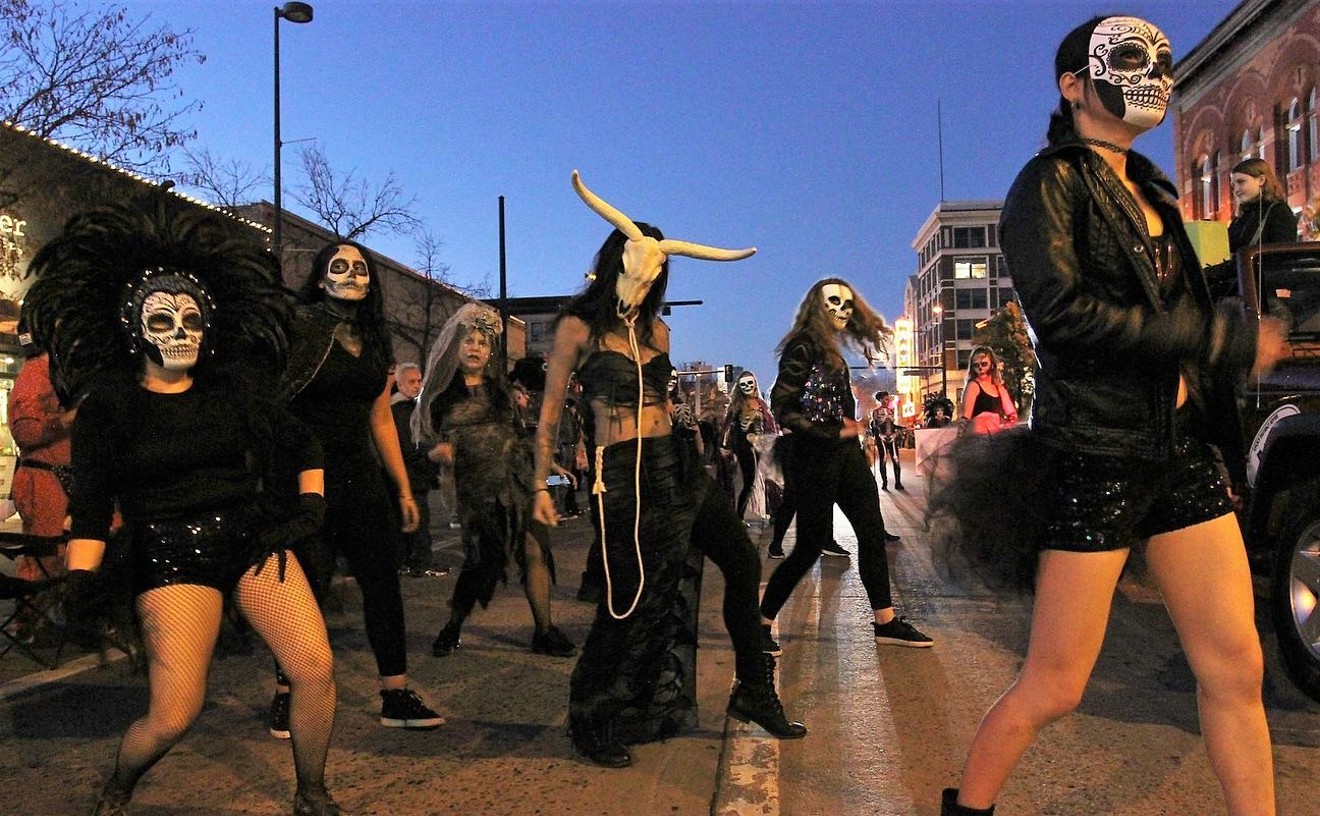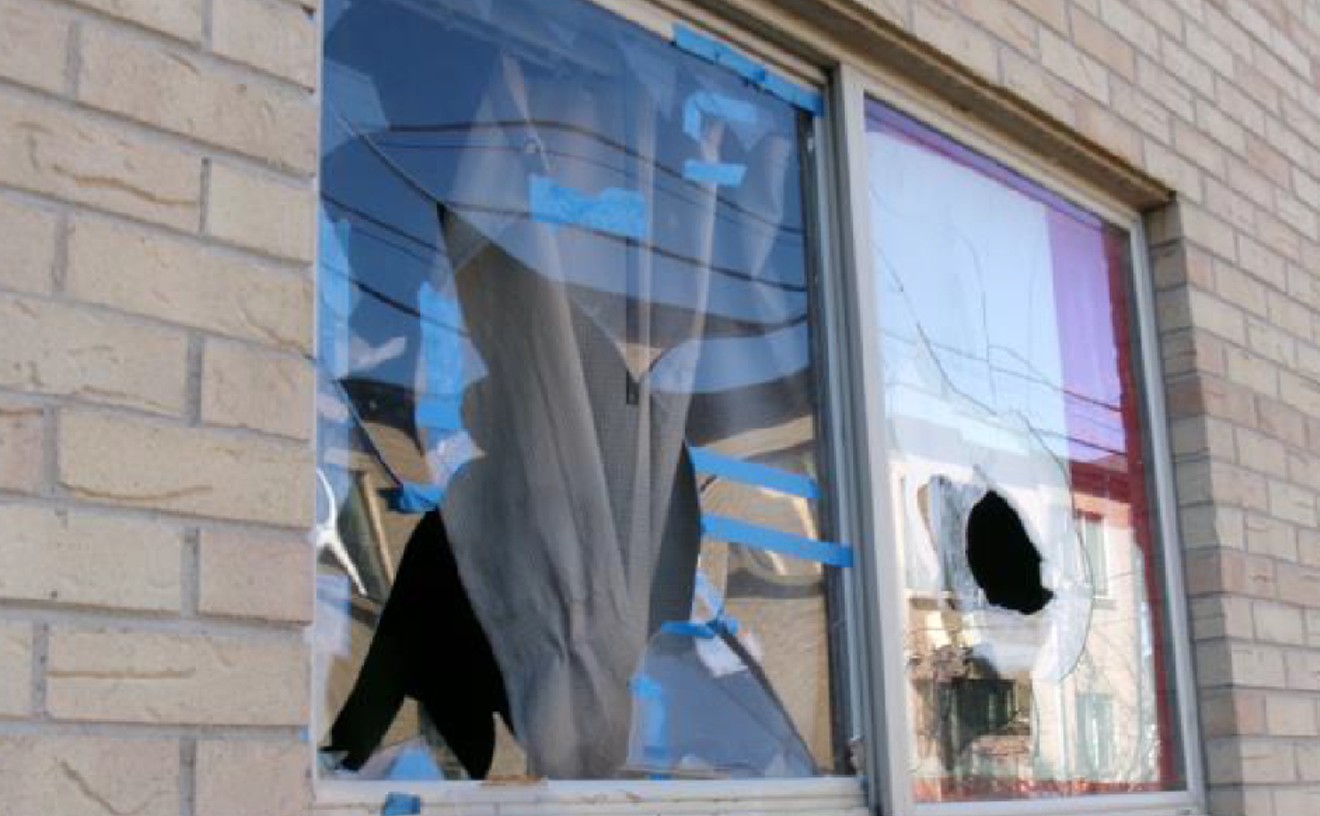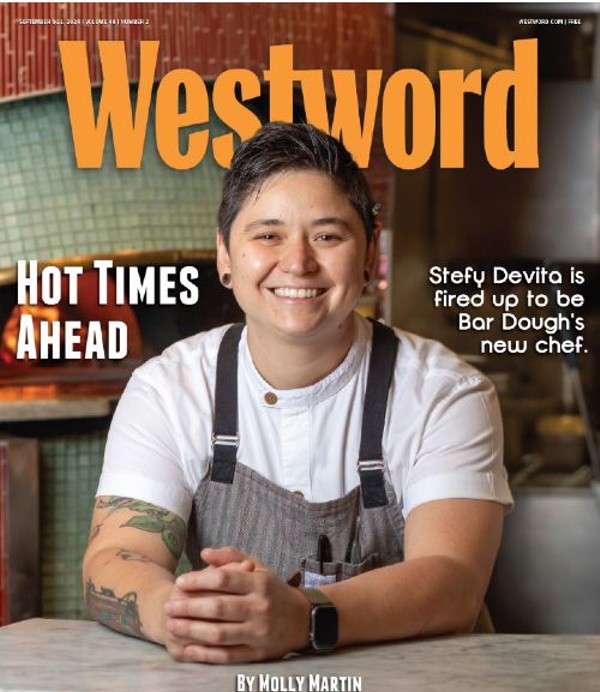The Regional Transportation District has been exempt from certain state revenue restrictions for decades. That exemption will expire this year — unless voters choose to make it permanent.
On Friday, September 6, advocates launched the campaign for Ballot Issue 7A, a measure to allow RTD to keep the tax revenue it collects by making the transit agency indefinitely exempt from the limitations of the Taxpayer's Bill of Rights (TABOR). Instead of refunding some of the revenue to taxpayers as TABOR requires, RTD could continue spending all of it.
If the ballot measure fails in November, RTD will have to refund around 7 to 10 percent of its $600 million-plus in tax revenue, reducing the agency's operating budget, says Danny Katz, executive director of the Colorado Public Interest Research Group, a group behind the pro-7A Keep Colorado Moving campaign.
"If voters don't take action, there will be a significant cut to funding after next year," Katz said during the launch event. "That's the exact opposite direction that we should be going. ... Investing in maintenance, expanding the buses and the train routes, providing more frequency, doing innovative programs like letting young people ride for free — all of those things are dependent on RTD's core funding."
The 1992 TABOR amendment limits the amount of revenue that government agencies can keep, mandating that revenue generated over a set limit (calculated each year based on inflation and state population growth) must be returned to taxpayers unless they vote to let the government keep it.
In 1995, Coloradans voted to exempt RTD from TABOR restrictions through 2005. Then, in 1999, voters again approved an exemption until the bond debt issued to finance the construction of certain light rail lines was paid. That debt will be paid off in November of this year, ending the exemption.
The timing of the expiration could spell trouble for RTD, though, since it follows a summer of significant delays and service disruptions on light rail lines throughout the Denver area. The issues have frustrated riders and spurred accusations of mismanagement, which could lead to voter concerns about a measure allowing the agency to keep tax revenue without having to ask for voter approval again.
But advocates say RTD's issues will only get worse if funding is cut. Sarah Oliver, who uses a wheelchair, spoke during Friday's event, explaining that RTD is her main source of transportation. She fears that if the agency loses funding, it will hurt transit access for people like her.
"Currently, there are routes that don't run more frequently than every hour. I want and need RTD to expand service, not cut it," Oliver said, adding that she frequently encounters issues with bus ramps and other accessibility features that she wants RTD to be able to fix. "Bus routes and infrastructure are critical to my ability to move through our city."
Advocates claim that the hit to RTD's operating budget would result in around 20 percent of bus and train services being cut within two years.
"There have been some challenges, but the simple answer is, less money isn't going to solve those issues," Littleton Mayor Kyle Schlachter said at the campaign launch. "Do you want RTD to have less money? I certainly don't. ... We're keeping things as is, so we can not have to make even harder choices and have more challenges."
Schlachter and Golden Mayor Laura Weinberg spoke in favor of the ballot measure, as did representatives of the Boulder Chamber of Commerce and the Colorado Cross-Disability Coalition. Nearly 100 elected officials and groups have signed on in support to bill, including twelve state legislators, four Denver City Council members and the Metro Mayors Caucus.

Audio By Carbonatix
[
{
"name": "Air - MediumRectangle - Inline Content - Mobile Display Size",
"component": "12017618",
"insertPoint": "2",
"requiredCountToDisplay": "2",
"watchElement": ".fdn-content-body",
"astAdList": [
{
"adType": "rectangle",
"displayTargets": "mobile"
}
]
},{
"name": "Editor Picks",
"component": "17242653",
"insertPoint": "4",
"requiredCountToDisplay": "1",
"watchElement": ".fdn-content-body",
"astAdList": [
{
"adType": "rectangle",
"displayTargets": "desktop|tablet"
},{
"adType": "rectangle",
"displayTargets": "desktop|tablet|mobile"
}
]
},{
"name": "Inline Links",
"component": "18838239",
"insertPoint": "8th",
"startingPoint": 8,
"requiredCountToDisplay": "7",
"maxInsertions": 25
},{
"name": "Air - MediumRectangle - Combo - Inline Content",
"component": "17261320",
"insertPoint": "8th",
"startingPoint": 8,
"requiredCountToDisplay": "7",
"maxInsertions": 25,
"watchElement": ".fdn-content-body",
"astAdList": [
{
"adType": "rectangle",
"displayTargets": "desktop|tablet"
},{
"adType": "rectangle",
"displayTargets": "desktop|tablet|mobile"
}
]
},{
"name": "Inline Links",
"component": "18838239",
"insertPoint": "8th",
"startingPoint": 12,
"requiredCountToDisplay": "11",
"maxInsertions": 25
},{
"name": "Air - Leaderboard Tower - Combo - Inline Content",
"component": "17261321",
"insertPoint": "8th",
"startingPoint": 12,
"requiredCountToDisplay": "11",
"maxInsertions": 25,
"watchElement": ".fdn-content-body",
"astAdList": [
{
"adType": "leaderboardInlineContent",
"displayTargets": "desktop|tablet"
},{
"adType": "tower",
"displayTargets": "mobile"
}
]
}
]

